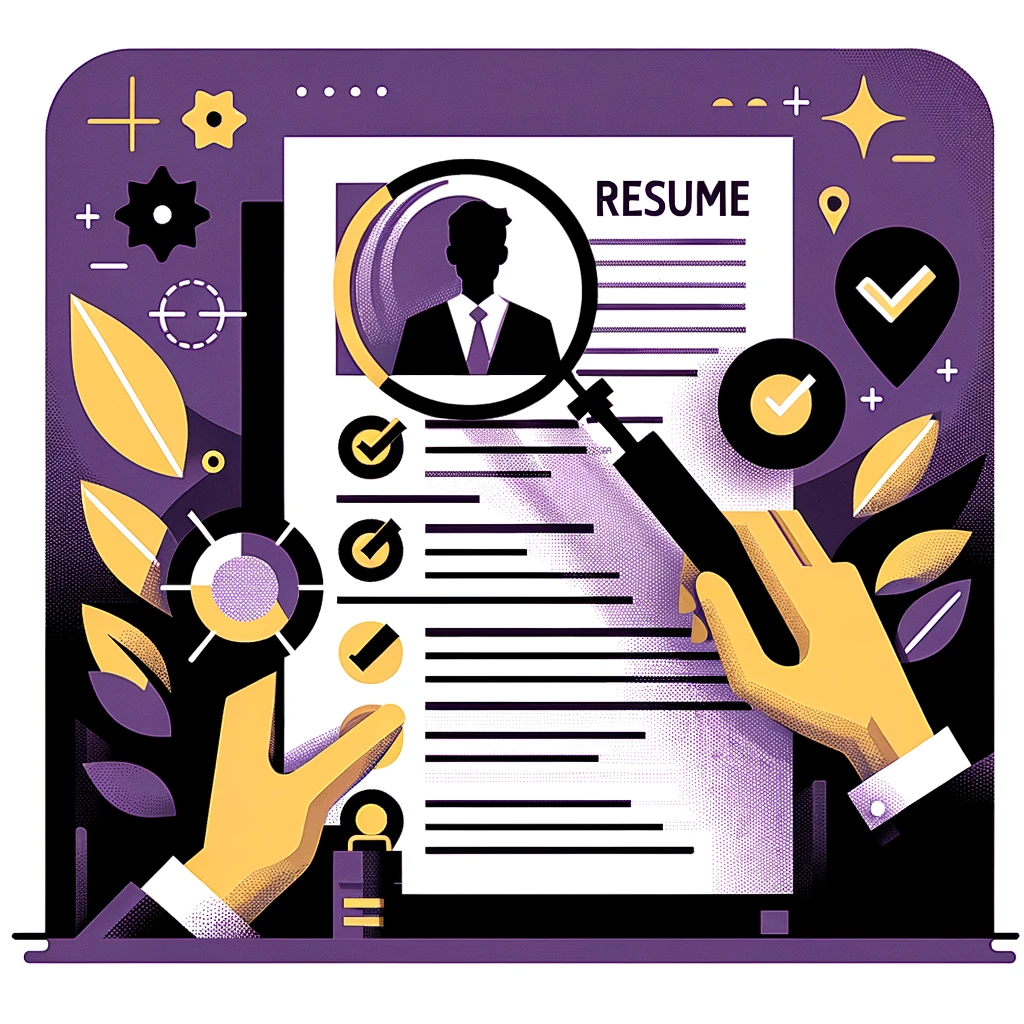Adjectives can help persuade a hiring manager to give you an interview and possibly a job, as they can can add depth and clarity to your story. But your résumé should still conform to standard business writing practices, so while adjectives have their place, there are limits to observe, as in all good writing.
It’s essential to consider adjectives as a spice, not the main course. Too much spice and you ruin the meal. Let’s look at how to use adjectives effectively in your résumé, then I’ll show you 50 resume adjectives to help spice up your story without overdoing it. Let’s start with some good business writing rules.
Using Adjectives in Business Writing
Business writing rules are not stuffy formats you are required to follow. They exist to help you communicate clearly—rules of thumb that make your professional story easy to read and understand. Even better, good writing is persuasive. You want this quality in your résumé and your cover letter. The point is to persuade the hiring manager to give you the job you want, yes? Or at least an interview. This requires persuasion.
Just the right balance of adjectives and strong verbs can do the trick. Here are some rules for properly using adjectives in your business résumé.
Be Specific
Opt for precise adjectives that clearly describe your point. Instead of "good," consider "excellent," "effective," or "high-quality."
Show, Don’t Tell
Support adjectives with concrete examples. For instance, instead of saying, "We provide good service," you could write, "We have a 98% customer satisfaction rate due to our responsive support."
Avoid Overuse
Too many adjectives can clutter your writing. Choose one or two strong, relevant adjectives to enhance a description.
Tailor to Your Audience
Consider who you're writing for and adjust the tone accordingly. For a formal audience, adjectives like "strategic" and "rigorous" might resonate, while creative descriptors such as "innovative" and "inventive" could be better for a creative industry.
Maintain a Professional Tone
Steer clear of overly emotional or boastful adjectives, like "amazing" or "fantastic," unless you're aiming for a casual tone.
Use Comparisons Carefully
If you’re using comparative adjectives like "better" or "best," be sure to provide context or comparisons that justify the claim.
Revise and Edit
After writing, review your adjectives to ensure they fit naturally and don't sound redundant or out of place.
Now, let’s look at the best adjectives themselves.
50 Powerful Resume Adjectives
I’ve listed 50 adjectives you can use judiciously in your résumé. They are broken down into categories. The categories apply to the type of résumé you’re writing, based on your skills and background.
Each adjective has a brief definition to guide your usage. Notice that one adjective replaces a lot of less powerful descriptive words. That’s why you use them, to be concise yet still descriptive.
For Technical Résumés
Analytical: Adept at breaking down problems and processes logically.
Systematic: Organized and methodical in approaching tasks.
Meticulous: Extremely careful and precise with details.
Precise: Highly accurate in technical work and documentation.
Logical: Able to structure information coherently and make rational decisions.
Methodical: Approaches tasks using structured methodologies.
Proficient: Competent and skilled in technical areas.
Detail-oriented: Focused on ensuring nothing is overlooked.
Rigorous: Thorough in testing and troubleshooting procedures.
Specialized: Possessing deep knowledge in specific technical fields.
For Creative Résumés
Visionary: Able to foresee trends and visualize future possibilities.
Imaginative: Thinks beyond conventional ideas to develop unique solutions.
Expressive: Communicates ideas and emotions vividly.
Innovative: Finds new ways to approach creative problems.
Artistic: Has a keen eye for visual aesthetics and design.
Original: Generates fresh, novel ideas.
Experimental: Open to testing new concepts and techniques.
Intuitive: Quickly grasps abstract concepts and works naturally with them.
Inventive: Creates new and valuable concepts or products.
Conceptual: Can translate abstract ideas into creative executions.
For Management Résumés
Strategic: Plans with a long-term vision and specific objectives in mind.
Decisive: Makes confident, well-informed decisions.
Authoritative: Commands respect through expertise and leadership.
Persuasive: Influences others to support an idea or course of action.
Influential: Shapes decisions and outcomes through networking and relationships.
Results-driven: Focuses on achieving goals and measurable outcomes.
Diplomatic: Handles sensitive situations with tact and care.
Accountable: Takes responsibility for decisions and results.
Empowering: Encourages and enables team members to perform at their best.
Resilient: Recovers quickly from setbacks.
For Customer-Focused Résumés
Personable: Friendly and pleasant in interactions with clients.
Empathetic: Understands and cares about customers' needs.
Attentive: Listens carefully and responds thoughtfully.
Responsive: Reacts quickly to customer concerns and issues.
Collaborative: Works well with others to meet client goals.
Reliable: Consistently delivers on commitments.
Adaptable: Adjusts quickly to new customer demands.
Patient: Handles demanding clients calmly and professionally.
Courteous: Polite and considerate in communication.
Supportive: Offers valuable guidance and assistance.
For Sales/Marketing Résumés
Persuasive: Convinces others to embrace ideas, products, or services.
Competitive: Strives to surpass goals and outperform competitors.
Charismatic: Engages clients with charm and enthusiasm.
Ambitious: Shows determination to achieve and surpass targets.
Resourceful: Finds creative solutions to marketing challenges.
Engaging: Captures and maintains customer interest.
Assertive: Confident in pitching and promoting products or services.
Observant: Notices customer behaviors and market trends.
Dynamic: Adjusts strategies rapidly to changing market conditions.
Results-oriented: Prioritizes achieving measurable sales targets.
Reasons Why You Should Use Resume Adjectives
Incorporating adjectives into your resume can significantly enhance its impact, making it more persuasive and engaging for hiring managers. Here are a few important reasons why you should consider using adjectives in your resume:
- Enhance Clarity and Depth: Strong resume adjectives can add specificity and detail, helping to paint a clearer picture of your skills and achievements. Instead of stating you have "skills," you could say you have "exceptional analytical skills," which provides more context and impact.
- Make Your Resume Stand Out: With numerous resumes to sift through, hiring managers often look for applications that stand out. Well-chosen adjectives can help your resume catch their eye and demonstrate creative thinking.
- Showcase Your Professional Personality: Adjectives allow you to convey your unique professional traits and qualities. For instance, describing yourself as "meticulous" or "innovative" gives potential employers insight into your work style and approach.
- Improve Readability: A resume filled with verbs and nouns can sometimes be dry and monotonous. Adjectives can break this monotony, making your resume more dynamic and easier to read while highlighting your communication and interpersonal skills.
- Align with the Job Description: Many job postings use descriptive language to illustrate the ideal candidate. By mirroring these adjectives in your resume, you demonstrate that you fit the profile they are looking for, increasing your chances of getting noticed.
- Boost Persuasiveness: Good resume adjectives can make your accomplishments and experiences sound more impressive. For example, stating that you led a "successful" project adds a positive, persuasive element to your narrative.
Common Mistakes to Avoid
While using adjectives can enhance your resume, it's crucial to avoid common pitfalls that can undermine their effectiveness. Here are the five most important mistakes to watch out for:
1. Overuse of Adjectives
Using too many adjectives can clutter your resume and make it difficult to read. It can also come off as trying too hard to impress, which can be a turn-off for hiring managers. Aim for a balanced approach by selecting a few powerful adjectives that accurately describe your skills and achievements.
Example of Overuse:
- Overly descriptive: "An ambitious, motivated, dedicated, and hardworking professional with a keen, sharp, and acute eye for detail."
- Balanced: "A dedicated professional with a keen eye for detail."
2. Vagueness
Vague adjectives do not add much value to your resume. Words like "good" or "nice" are too general and do not provide specific information about your capabilities or achievements. Opt for more precise adjectives that convey a clear image of your skills and experience.
Example of Vagueness:
- Vague: "Good at managing teams."
- Specific: "Effective at managing cross-functional teams."
3. Inconsistency
Ensure the adjectives you use match your actual skills and experiences. Inconsistent or exaggerated adjectives can make you appear dishonest or lacking in self-awareness. Be truthful and choose adjectives that accurately reflect your professional background.
Example of Inconsistency:
- Inconsistent: "Expert in all areas of marketing."
- Consistent: "Skilled in digital marketing and social media strategies."
4. Overly Emotional or Boastful Adjectives
Adjectives that are too emotional or boastful can come across as unprofessional. Words like "amazing" or "fantastic" should be avoided unless you are applying for a role where a very casual tone is appropriate.
Example of Overly Emotional:
- Overly emotional: "An amazing and fantastic leader."
- Professional: "An accomplished and respected leader."
5. Neglecting to Support Adjectives with Evidence
Adjectives are more powerful when they are supported by specific examples or metrics. This not only validates your claims but also provides tangible proof of your abilities.
Example of Unsupported Adjectives:
- Unsupported: "A results-oriented manager."
- Supported: "A results-oriented manager who increased team productivity by 30%."
Looking Forward
Now that you're armed with lots of adjectives to describe your skills and experiences, it's time to put your knowledge into practise. Before creating your resume, review these key takeaways:
- Match the Job Description: Use adjectives that align with the job listing to show you fit the role and pass ATS filters, whether that means highlighting organizational skills, your work ethic or leadership abilities.
- Reflect Your Strengths: Select adjectives that genuinely represent your unique skills and qualities.
- Avoid Clichés: Steer clear of overused terms like "hardworking" and "dedicated" and choose more unique descriptors.
- Be Specific: Opt for precise adjectives that provide a clear picture of your abilities, such as "articulate" or "meticulous."
- Tailor to Your Audience: Adjust your adjectives to fit the industry and the formality of the job you're applying for.
- Use Strong, Positive Adjectives: Choose adjectives that convey confidence and a positive image in your skills section, like "proactive" and "strategic."
FAQs
Can using the wrong adjectives hurt my chances of getting a job?
Yes, using the wrong adjectives can negatively impact your resume. Adjectives that are vague, overused, or irrelevant can make your resume less effective. It’s important to choose adjectives that accurately reflect your skills and match the job description.
In what section of my resume should I use adjectives?
Adjectives should be used in your resume summary to create a strong first impression, but they should also be included in the experience section to highlight specific roles and achievements, in the skills section to emphasize your key abilities, and in the education section to describe relevant coursework if necessary.
Should I customize adjectives for different job applications?
Yes, customizing adjectives for different job applications is a good practice and tailoring your resume to match the specific job description and company culture can demonstrate that you are a good fit for the role. Use adjectives that align with the skills and qualities the employer is seeking.
What should I do if I'm unsure about which adjectives to use?
If you’re unsure about which adjectives to use, start by reviewing the job description for keywords and required skills. Choose adjectives that best match these requirements and reflect your true strengths.


